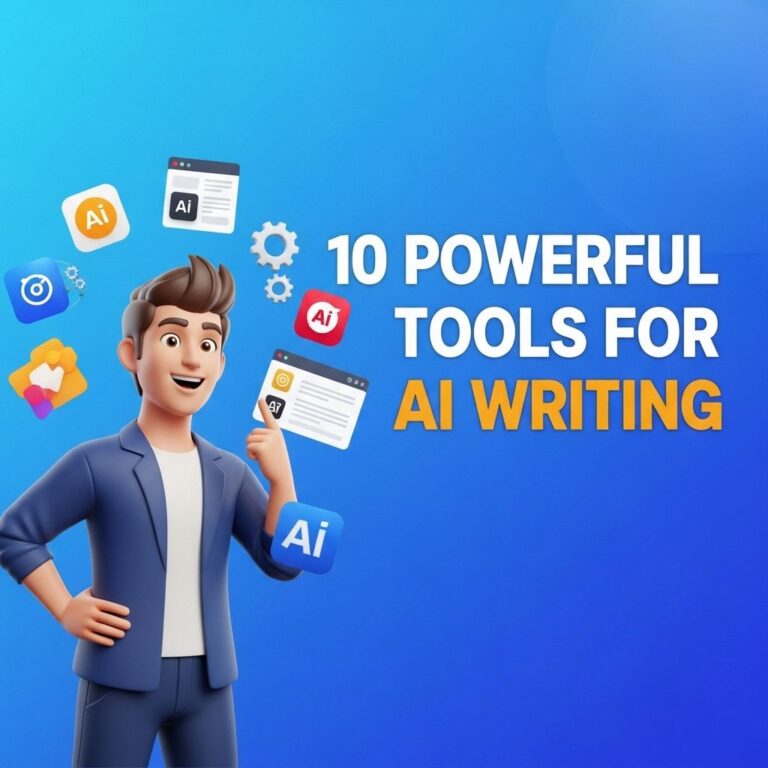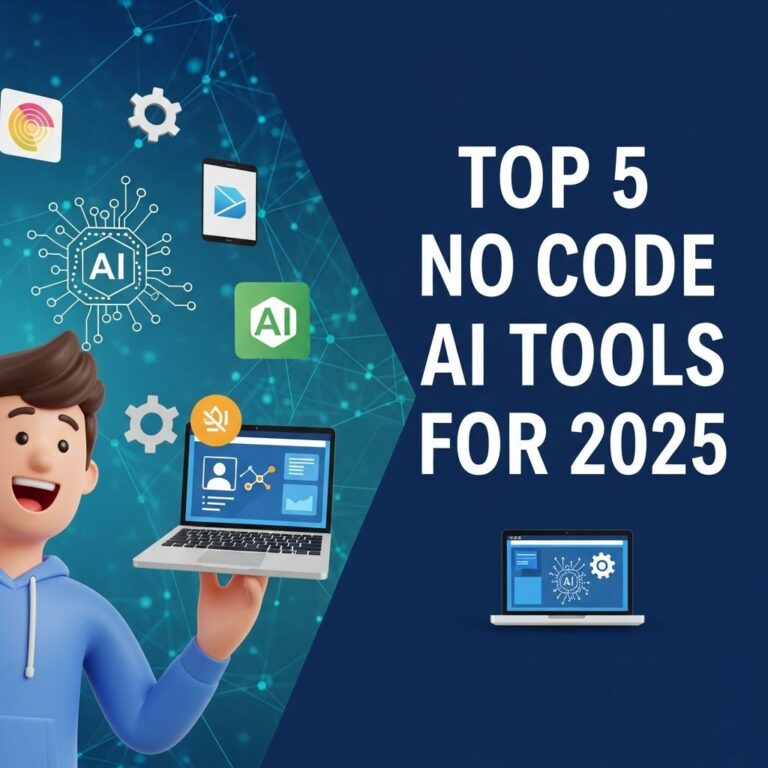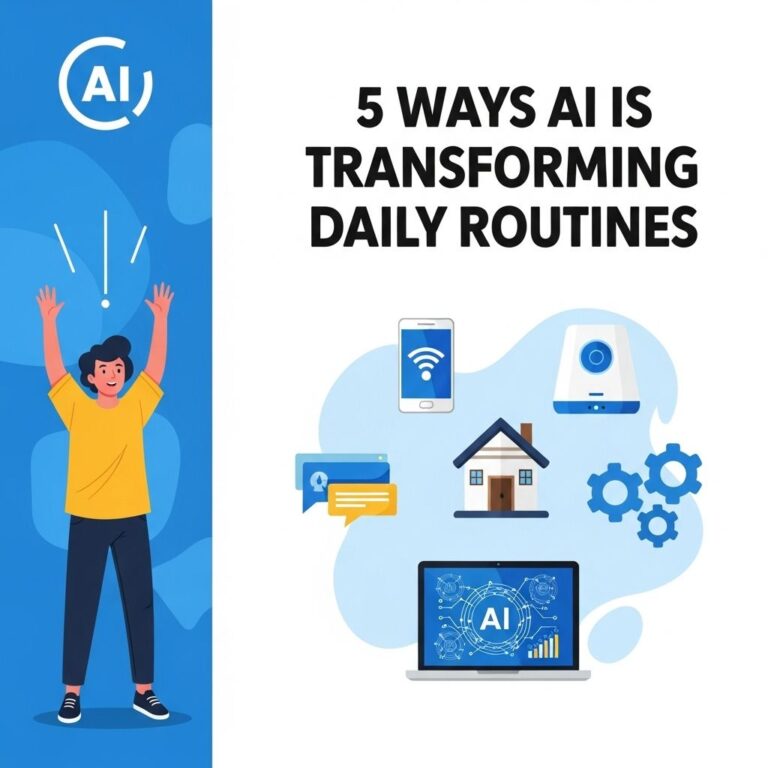As we venture further into the digital age, the rapid evolution of technology continues to reshape the landscape of creativity and innovation. In particular, generative AI has emerged as a powerful force, enabling artists, writers, and developers to push the boundaries of what is possible. Looking ahead to 2025, a new wave of generative AI tools is set to revolutionize various industries, making them more accessible and versatile than ever before. This article explores the top 10 generative AI tools that are anticipated to dominate the scene in 2025.
Table of Contents
Understanding Generative AI
Generative AI refers to algorithms that can generate new content, including text, images, music, and even code. These tools utilize deep learning techniques, specifically Generative Adversarial Networks (GANs) and transformer models, to learn from existing datasets and create original outputs. With capabilities ranging from content creation to advanced simulations, generative AI has found applications across numerous fields.
Key Applications of Generative AI
- Content Creation
- Visual Arts
- Game Development
- Product Design
- Virtual Reality
Top 10 Generative AI Tools for 2025
As we look to the future, several generative AI tools are poised to emerge as leaders in this space. Here’s a detailed look at the top contenders:
1. ChatGPT-X
Building on the success of its predecessors, ChatGPT-X is expected to offer enhanced conversational abilities and a broader knowledge base. Its capabilities will extend beyond simple text responses, allowing for more nuanced interactions, context-aware dialogues, and improved emotional intelligence.
2. DALL-E 3
DALL-E 3 promises to take image generation to new heights. With improved understanding of textual prompts, this tool will generate high-quality, diverse images based on user descriptions, enabling artists and marketers to create visual content more efficiently.
3. MusicGen
MusicGen is a state-of-the-art music generation tool that analyzes existing compositions to create original melodies and arrangements. With a user-friendly interface, musicians can experiment with genres and styles, fostering creativity like never before.
4. Canva AI
The next iteration of Canva will incorporate AI-driven design suggestions that adapt to user preferences. This tool will simplify the graphic design process, enabling non-designers to produce professional-quality visuals with ease.
5. RunwayML
RunwayML is an innovative platform combining AI with creative tools. In 2025, it will offer advanced video editing capabilities, allowing users to generate effects, transitions, and even characters in real-time, dramatically enhancing the filmmaking process.
6. Copy.ai Pro
Copy.ai Pro will refine the content generation landscape by providing tailored writing assistance across different formats, from blog posts to marketing copy. With an intuitive interface, it will help marketers create compelling content that resonates with their target audiences.
7. Artbreeder 2.0
Artbreeder 2.0 will enable users to combine and manipulate images seamlessly, fostering collaborative art creation. With a vast library of user-generated content, artists can explore new styles while maintaining ownership of their creations.
8. Synthesia 2.0
Synthesia 2.0 will transform video production by enabling users to create realistic avatars that can speak in multiple languages. This tool will be invaluable for businesses seeking to localize their content and enhance audience engagement.
9. Runway AI Code
In the realm of software development, Runway AI Code is expected to provide developers with intelligent code suggestions and bug-fixing capabilities. This tool will significantly speed up the coding process while maintaining high-quality standards.
10. Jasper AI
Jasper AI will evolve to provide personalized content creation solutions tailored to individual user preferences. With advanced learning algorithms, it will analyze user behavior to recommend relevant topics, styles, and formats for maximum impact.
Considerations When Choosing Generative AI Tools
When selecting a generative AI tool, consider the following factors:
- Performance: Evaluate the quality of outputs and speed of generation.
- User Experience: Look for intuitive interfaces and user-friendly features.
- Integration: Consider how well the tool integrates with your existing workflows.
- Cost: Assess the pricing models and whether they fit your budget.
Future Trends in Generative AI
The upcoming trends in generative AI hint at even more exciting developments:
| Trend | Description |
|---|---|
| Personalization | Tools will increasingly provide customized experiences based on user data. |
| Ethical AI | Focus on developing responsible AI that minimizes bias and respects privacy. |
| Collaborative Creation | Platforms will enhance collaboration features, allowing multiple users to co-create seamlessly. |
Conclusion
The future of generative AI is incredibly promising, with numerous tools set to reshape creative landscapes across various industries. Whether you’re an artist, writer, or developer, staying informed about these advancements will empower you to harness the potential of generative AI effectively. As we approach 2025, embracing these tools will not only enhance productivity but also unlock new avenues for creativity and innovation.
FAQ
What are the top generative AI tools to watch for in 2025?
Some of the top generative AI tools anticipated for 2025 include advanced language models, image synthesis platforms, and AI-driven creative software that enhance productivity and creativity.
How will generative AI tools improve content creation?
Generative AI tools are expected to streamline content creation by automating processes, providing creative suggestions, and personalizing content for various audiences.
What industries will benefit the most from generative AI tools in 2025?
Industries such as marketing, entertainment, education, and healthcare are likely to benefit significantly from generative AI tools due to their ability to create tailored content and improve efficiency.
Are there ethical concerns regarding the use of generative AI tools?
Yes, there are ethical concerns related to copyright, misinformation, and the potential for bias, which will need to be addressed as generative AI tools become more prevalent.
How can businesses integrate generative AI tools into their operations?
Businesses can integrate generative AI tools by identifying specific use cases, training staff on the technology, and ensuring proper governance and ethical guidelines are in place.
What skills will be necessary to work with generative AI tools in the future?
Skills such as data analysis, machine learning understanding, and creative problem-solving will be essential for effectively working with generative AI tools in the future.









